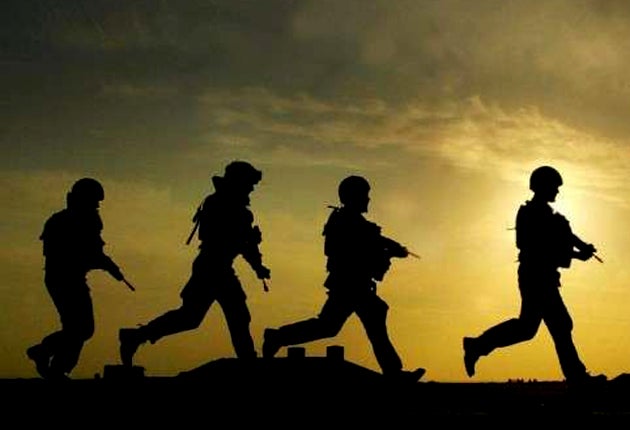Retreat? Hutton and Butler 'back public Iraq inquiry'
Gordon Brown set to make U-turn over Iraq war inquiry and hold sections in public after attack by military and intelligence chiefs

Gordon Brown is considering a startling U-turn over the official inquiry into the Iraq war which could see witnesses give evidence in public rather than behind closed doors.
The Prime Minister, who announced on Monday that the investigation by privy councillors would be held in private, faces a rebellion by Labour MPs after military and intelligence officers condemned his decision, warning in this newspaper that it looked like a cover-up.
Backbenchers are threatening to inflict a humiliating Commons defeat on the Prime Minister next week.
And in a further blow to Mr Brown, two peers who chaired previous inquiries into aspects of the Iraq conflict, Lord Hutton and Lord Butler of Brockwell, support the bulk of the evidence to be heard in public, The Independent has learnt.
Their views undermine the Government's claim that the best way to learn lessons would be for the inquiry to be held in private.
Last night, General Sir Richard Dannatt, the Chief of the General Staff, said the Government had not consulted him. "I was not privy to the discussions," he said. "I am sure the option of part in public and part in private was considered and I think that that is an option that has got a lot of merit to it."
And Ed Balls, the Schools Secretary and a close Brown ally, broke ranks yesterday by hinting that he wants at least part of the proceedings to be held in public. "If you're asking my personal view, I'd prefer it to be as open a process as possible," he told ITV.
The British general with the most extensive involvement in the Iraq campaign said the inquiry should be held in public. Major General Tim Cross, who was intimately involved in the planning and military operation, and appointed deputy to the US General Jay Garner to head the authority running Iraq after the fall of Saddam Hussein, told The Independent: "This inquiry should be in public as much as possible, and then, if necessary, go into private sessions to hear sensitive intelligence-related testimonies. I can see no reason at all why I cannot give my evidence in public if I am called before the inquiry.
"It is vitally important that there is a thorough review of what took place, both pre and post war.
"This would be of enormous benefit not only to the military, but other government departments as well... [and] in planning current and future operations in Afghanistan and military missions in which we may become involved." In private evidence given to the Commons Public Administration Select Committee, Lord Hutton and Lord Butler agreed that secret inquiry hearings into Iraq could not be justified given the interest in the war.
They were supported by former diplomats who were questioned by the Labour-controlled committee, which is preparing to add its voice to demands for public hearings in a report it will publish on Saturday.
The committee chairman, Tony Wright, said only: "This has to be a public inquiry. Everybody accepts there are parts that need to be taken in secret, but there should be a presumption that much of it should be in public. Only if the inquiry is conducted in a manner which is legitimate and credible – and is seen to be so – will the public be assured that it is not a whitewash."
Labour whips warn that a rebellion is possible on Wednesday when the Tories will propose that the investigation be held largely in public, with only classified evidence heard behind closed doors. Some MPs predict a repeat of the embarrassing defeat on the residence rights of retired Gurkhas.
Mr Brown is expected to discuss with the inquiry chairman, Sir John Chilcot, whether some sessions could be open to the public. The Prime Minister's allies insist that he is not wedded as a matter of doctrine to all evidence being taken in private. They say he was advised by senior Whitehall figures that this would be the most effective way to learn lessons. Mr Brown fears a mainly public event would be a "lawyers' paradise" that could drag on for years.
He now has an agonising dilemma. If he stands firm, he could face a Commons defeat forcing a U-turn. If he backs down, disclosures could embarrass the Government in the run-up to the general election.
Senior Labour sources forecast a retreat before next week's debate. One said: "There has been a complete failure to understand the politics of this."
Join our commenting forum
Join thought-provoking conversations, follow other Independent readers and see their replies
Comments